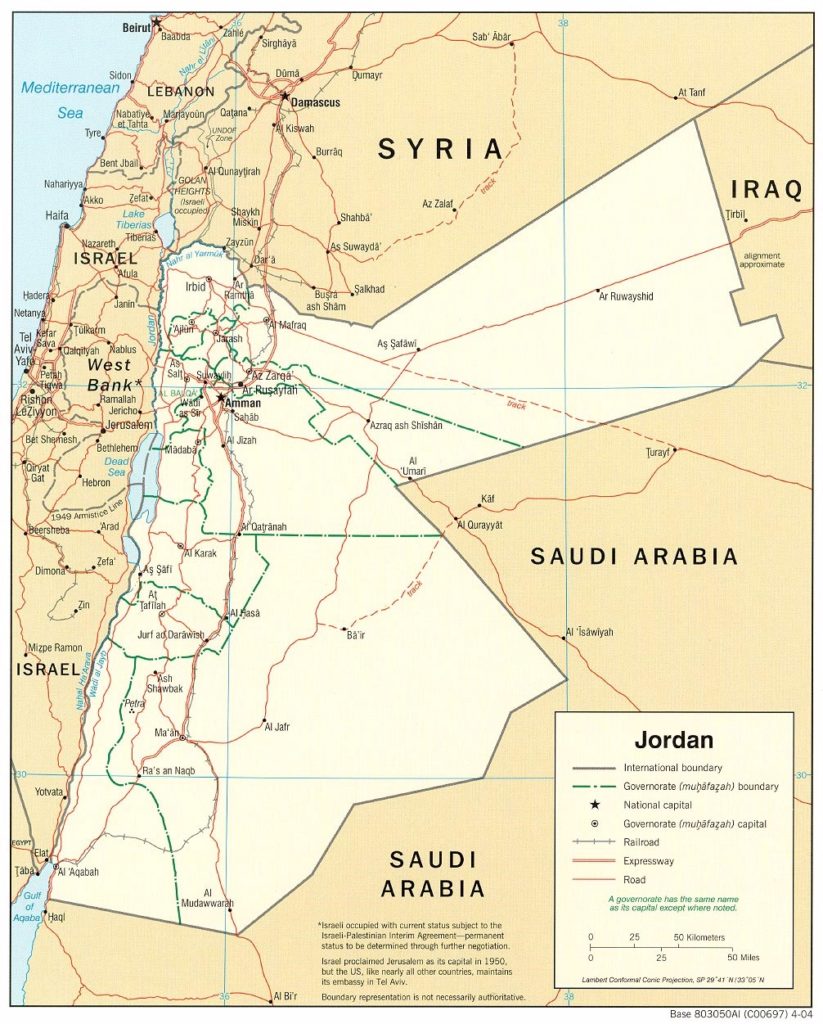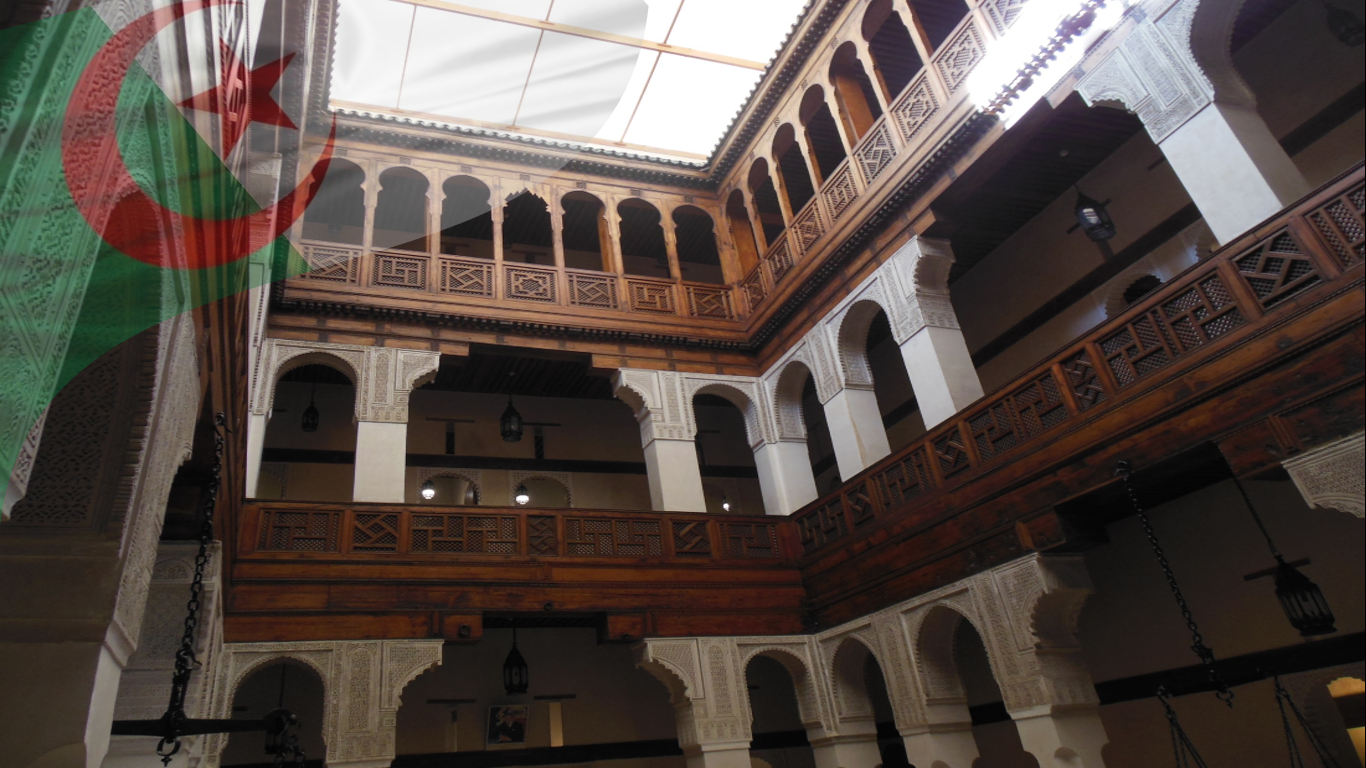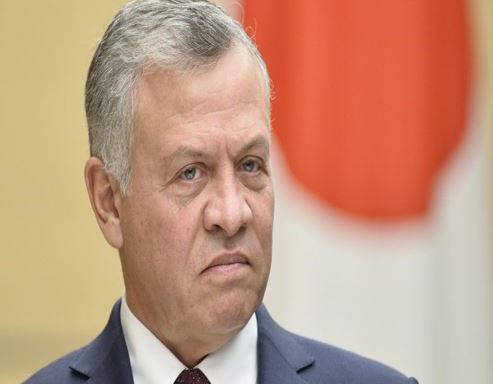As the general Arabic debate concentrates now on the “deal of the century” more and more people guesses what steps each state will take. All this of course comes amidst the general Iranian-American, and Iranian-Gulf tension, which raises, but no doubt inherently tied to future of the region. Since if a general rearrangement would be enforced on the regional states by the current American leadership that means Palestine gets out of the equation and Israel gets approved totally by the Gulf. In such major rearrangement not only most states have to rearrange their stance towards the Palestinians and the Israelis, but also to those states, which would take position against the deal. Naturally most states have to rethink their own weight and the weight of their allies.
Most of us, just like the Arab press now, in this regard think of the major states, like Egypt, the Gulf, or Iraq. And in this regard of course the current uncertainties in Algeria and Sudan are worrying signs, where in both cases the Emirates are deeply involved, just like in Libya, where the fights erupted again between the Saudi-Emirati backed forces and the Turkish-Qatari supported ones. In such a case it is almost natural that attention completely shifted from the smaller, seemingly more stable countries, though as we saw last week, even the lesser cared about countries give more to think about now in the general Middle Eastern calculations ahead of the deal of the century. And the recent double suicide attack in Tunis on 27 June 2019 against the security forces prove well that Tunis does indeed boils in uncertainty. However, there is one particular country, which should deserve more of our attention, as it sits between major fault lines.
Jordan managed to stay out of the limelight now, but it is obviously the country most effected by the deal of the century, if it will happen. In one hand, this is the country right next to Palestine with a huge Palestinian refugee population for decades, which by now exceeded the local population and became the vast majority. Therefore, if Palestine will be agreed never to be created Jordan is the most logical choice to be the “replacement country”. This term, “dawlatu l-badīl” or “country of replacement” or “country of compensation” is a circulating phrase in the Arabic thinking for quite some time pointing to the idea that if the Israelis manage to scrap the Palestinian state by American backing Washington and its allies might draw for the Palestinians another territory to form their state upon it. That might be a part of Egypt in the Sinai Peninsula, part of Jordan – if the USA gives away the whole West Bank, as recently American ambassador to Israel, David Friedman said it would -, or the whole Jordanian state in a reconstruction. That is a very obvious threat to the current Hāšimī royal dynasty and the whole state apparatus. Therefore we should assume Amman now does everything to block the Manama Summit. On the other hand Jordan is heavily dependent not only on American support as it belongs since its creation to the pro-Western Arab block, but also on the Gulf. First among them Saudi Arabia, which is the biggest financial supporter of Jordan. In this sense Amman can hardly say no to the deal of the century, which is the initiative of the Americans, the Gulf states – expect Qatar and Oman – and Israel, with which Amman also have a harmonic relation now. Yet, what also adds to the equation is that Jordan has much to fear from an unset regional balance. It was greatly involved in the Syrian and Iraqi insurgency, in the American support behind it, and the Dā‘iš activity had worrisome affects on the country. Since both the Syrian and the Iraqi governments seem to gain the upper hand now in their wars on Dā‘iš and stay close to Iran Amman has to reassess its regional strategies. Not forgetting that it was Jordan, which came up with the “Shia Crescent” phrase in 2006, and was in the forefront to thwart growing Iranian presence in the region, now with two powerful neighbors consolidating themself along Iranian lines Jordan has much to worry about. If for nothing else, for the flock of Dā‘iš members, many of them Jordanian citizens, who are about to return. But in this regard Amman cannot really count in intelligence support nor from Damascus, nor from Baghdad.

In recent years there were many incidents which rightfully cause fear in the inner governmental circles, as in 2015 and 2016 shocking shoot-outs occurred. While these were successfully brushed under the carpet, recently in May a major reshuffle occurred in the highest security circles. And these were guessed to happened in prevention of a coup attempt. So this week we are to look into Jordan, as ahead of the Bahrain Summit, it is most important where Amman is heading. Since who knows more about Palestine than the Jordanians?
The writing is on the wall
Of course there are a number of reasons why Jordan is so important, but what should be viewed as an eye-opening step was the kings decision to dismiss – officially accept the resignation of – ‘Adnān al-Ğundī, head of the Intelligence Bureau with a group of high level officers in the intelligence circles and a number advisors in the royal court. The royal degree on 1 May pointed to a small minority in the intelligence community, which acted individually in certain cases and overstepped constitutional boundaries. Some see that as a result of rampant corruption in the Jordanian secret service, which would not be phenomenal, since in 2000 the former director of the same office, Sāmiḥ al-Baṭṭīhī was sentenced 8 years of prison for his involvement if bank frauds, while his substitute Muḥammad ad–Dahabī was convicted for money laundering. And since the new director, Aḥmad al-Ḥusnī is a Circassian with no known political inclinations the unprecedented step can be seen as a move for more professional Intelligence Bureau, as it became in recent years more of a huge economic power center, much like the high army circles in Egypt. Or just as much it can be a message that reliance once again shifts to the minorities and the tribes generally more loyal to royal house. Other source attributed this step as result of a possible coup attempt by outer sources, which throught these offices tried to influence state decisions for a more favorable one towards the Bahrain Summit. Since some sides, most especially the Americans were unsatisfied with the lack of progress in the preliminary steps for a major settlement, as Jordanian position is still somewhat dubious. Either way it was, it is indeed an unusual step to shake up the complete security apparatus right before expected major changes in region. Like in football, to change a defender before corner, one doesn’t do such a thing except he has certain knowledge beforehand something is to happen, or utterly incompetent.
The two possible explanations, however, don’t exclude each other. In a nutshell the idea behind the deal of the century is that Palestine would cease to exist in any official form, all Palestinian territories would be incorporated in the Israeli state, for which in exchange the Palestinians would obtain large sums in economic development, possible resettlement opportunities in neighboring states, given they agree, and the states around Palestinian – excluding Syria – would also gain access to large development funds. In case of Jordan that would be some $7,5 billion in the course of ten years in the form of 15 development programs, which are still very unclear. In practical terms that means that the Palestinians would get a huge amount of money for giving up their claim for their state, while the neighbors would also get rewarded for taking in Palestinians and incorporating them into their own societies. That is of course for Jordan, where there are already some 2,1 million Palestinians – most of them citizens for decades – and since 2017 the USA cut its support for UNRWA, the U.N.’s main body to support these refugees, is both a great necessity and the lethal threat. Now considering that the financial reward would come in the form of development projects and knowing the immense economic interests of the Jordanian Intelligence Bureau, it is logical to assume that the persuasion attempt was indeed made this way, where large sums would eventually end up in some generals’ coffers. If this assumption is at least somewhat correct, than the step was not only logical, but necessary.
A number of lesser known incidents also point the growing need for more real security now. When Syria started to flare up in 2011, especially that it started in the vicinity of the Jordanian border Amman was at the crossroads. Should Jordan walk along and help the Western-Gulf attempt for regime change in Syria, or should it stay at least neutral and risk repercussions from the same circles, which tried to destroy Syria? The latter for a country so intimately exposed to the West and the Gulf is obviously dangerous. The example of Iraq, much less exposed even than, proves well that Jordan could hardly allow risking trouble with the Gulf. Therefore, as we now from the words of Ḥamad Ibn Ğasim, former Qatari PM and Minister of Foreign Affairs from 2017 Jordan cooperated and the first operation room for causing instability in Syria was established in Jordan. As the first attempts failed Jordan went farther and stared a covert operation with the help with the CIA – thorough one of its biggest centrally financed service provider, DynCorp – to train and arm the so called “Free Syrian Army” terrorist group. Which also meant a large number of Jordanians being incorporated into similar groups, not excluding Dā‘iš. In years a number of events forced Amman to re-evaluate its stance, which only lead it to be more reliant on the Americans. The smallest, though most obvious amongst them is that in the summer of 2018 the Syrian Army reestablished its control along the Jordanian border, and considering the difference both in military power and intelligence capabilities Jordan has every right to fear repressions. But the real signs are more internal.
On 9 November 2015 corporal Anwār Abū ‘Ubayd killed 4 people – 2 Americans, 1 South- African, and 1 Jordanian – and injured six others – amongst them 3 Americans – in the Jordan International Police Training Center in al-Muwaqqar, close to the capital. The training center officially trains police officers in the region for more capable work, mostly for Lebanon, Jordan and Iraq, and is run by DynCorp with direct American involvement. In other words it is an American training center of Jordanian soil for unclear reasons for the the whole region. The perpetrator, who was killed in the action was eventually redeemed as a lone attacker, who killed of financial and psychological reasons.
Almost a year later, on 4 November 2016 something similar happened in al-Ğafr, in the King Faisal Air Base. Sergeant Ma‘ārik Abū Tāyah opened fire on a small convoy for three jeeps at the entrance of the base, killing 3 Americans from the Special Operations and one other later also succumbed to his wounds. Interestingly this is the remote base where most of the Free Syrian groups were trained by the CIA. Western sources lightly covered the event, mostly later, but Arab sources gave more interesting details as on 2 November and major uprising took place in the compound by the trained insurgents. That resulted in a complete lockdown and mop-up operations for days in the vicinity. The shot Americans probably took part in one of these. For days there was total obscurity on the matter as Jordanians initially claimed the Americans did not stop at the gate and what happened was the result of misunderstanding, but the Americans claimed – and the footages do support that – they were in full compliance and the attack came unprovoked. A year later Ma‘ārik Abū Tāyah got life sentence, but all notions of major uprising or his connections to crime organizations were dashed.
The al-Ğafr attack still fresh yet another attack shocked the country. On 19 December 2016 a shootout happened in al-Qaṭrāna, close to al-Karak, where militants attacked local police and drove away to al-Karak. Here they attacked the local tourist police and took shelter in the historical castle. In the following operations, where a number of tourist got trapped in the castle, 4 Jordanian policemen and a Canadian tourist got killed, while 34 Jordanian, 1 Canadian and 2 Malaysian tourist got wounded. Out of the 6 militants 5 were killed and the last one sentenced for life imprisonment. The incident was so severe that PM at that time, Salāma Ḥammād got sacked in January 2017 for this.
These incidents might seem minor, but revealed two very unnerving things. First of all it showed how fragile is the stability in the kingdom, which is always portrayed as a safe heaven between the menacing neighbors Syria and Iraq. But even more inconvenient that it suddenly uncovered how deeply involved Jordan is in the American operations in the region. And that was the same era when a number of videos showed the support for Dā‘iš in the country and in one of them they are warmly welcomed at the border returning from ar-Ramādī in Iraq.
The tightening noose
After the Syrian Army reestablished safety in the south Jordanian authorities slowly started to move towards normalization. In October 2018 the Ğābir–an-Naṣīb border crossing was opened once again between Jordan and Syria, which was hoped to help the return a large number of Syrian refugees, but instead Jordanians swarmed the place to look for affordable commodities in the neighboring country. Which is only one indicator showing the economic hardship in Jordan. The crossing and the economic normalization is vital for Amman, much more than for Damascus, as across Syria Jordan has access to the Lebanese, and from there to Turkish markets. Before the war that crossing alone facilitated 17% of Jordan’s total exports.
Economy is indeed a pressing aspect now, as the debt by 2018 met unprecedented heights and it still seem to grow. That lead the government to use the two traditional cards, the West and the Gulf. In October 2018 Jordan asked for and got a $1 billion cash-based loan from the Gulf, which Saudi Arabia, the UAE and Kuwait provided. That, however, did not prevent the government to accept austerity measures after a new IMF loan – the second after 2016 -, which steadily raised prices and cuts subsidies on basis goods. That though lead to huge protests for more than six months, but the kingdom is so dependent on foreign donors it can hardly take other course of action. Which by now lead to a debt spiral between IMF and the Gulf. In such a case any major money transfer which is not a loan is getting lesser an option than a necessity by every passing month.
Only from these angles can we truly understand the dilemma in Amman now. In hand the changing realities in Iraq and Syria would necessitate consolidation. The possible return of former Dā‘iš members even more so. That added to the possible annihilation of the Palestinian state present lethal security challenge, but from that Amman now cannot step away since all the negative changes are forced upon it by the very same states, which keep Jordan alive.
The most delicate balance
Now where is Jordan standing in the deal of the century? So far it expressed that it will join in foreign ministerial level, but won’t agree any Palestine connected points unless the Palestinians themselves agree. Which is quite a dual message considering all Palestinian political factions clearly expressed their refusal. Which would make any representation in Bahrain futile, since the result is – at least theoretically – known. But Jordan only needs American favor now, and Washington only needs highest possible representation, since the plan is already done and everyone knows in Manama there will be no negotiations, only dictations. Nonetheless Jordan now tries to give an image of neutrality, but pro-Palestinian, or pro-Arab stature and is looking for allies not closely attached, or at least not leading member of any camps. The Egyptian-Iraqi-Jordanian triple summit in Cairo in March 2019 aimed to boost trade, but also to find a diplomatic channel to the other camp. The meeting in Rabat on 28 April with the Moroccan monarch and the common statement of support for Syrian for the Ğulān and Palestine for Jerusalem, should also be understood in this sense. The positions of Morocco and Jordan are very similar, both being very pro-Western monarchies with good relations to the Gulf, yet recently experiencing troubles with it, but Morocco is much less threatened by the upcoming changes.
Whatever comes in Bahrain, it will have almost identical effects of Palestine and Jordan. One is about to be taken of the map, while the other is about to be dismantled and given away in exchange. The main difference is that while Palestinians have no choice but to resist, the current Jordanian leadership tries to find an exit, which very possible does not exist. Or if it is, than that is given by the countries, which firmly resist the deal of the century. Given the economic and the shocking security situation, Jordan simply cannot do that now. Therefore to survive it has to hope that in this quarrel the side which wins is the one it fights against. So now it hides behind the back of other cooperating but unhappy partners in the region like Egypt or Morocco, but unlike those, for Jordan the stake is the survival. And might just very much happen that the Jordan we know today will cease to exist sooner than Palestine in any form by the deal of the century.


